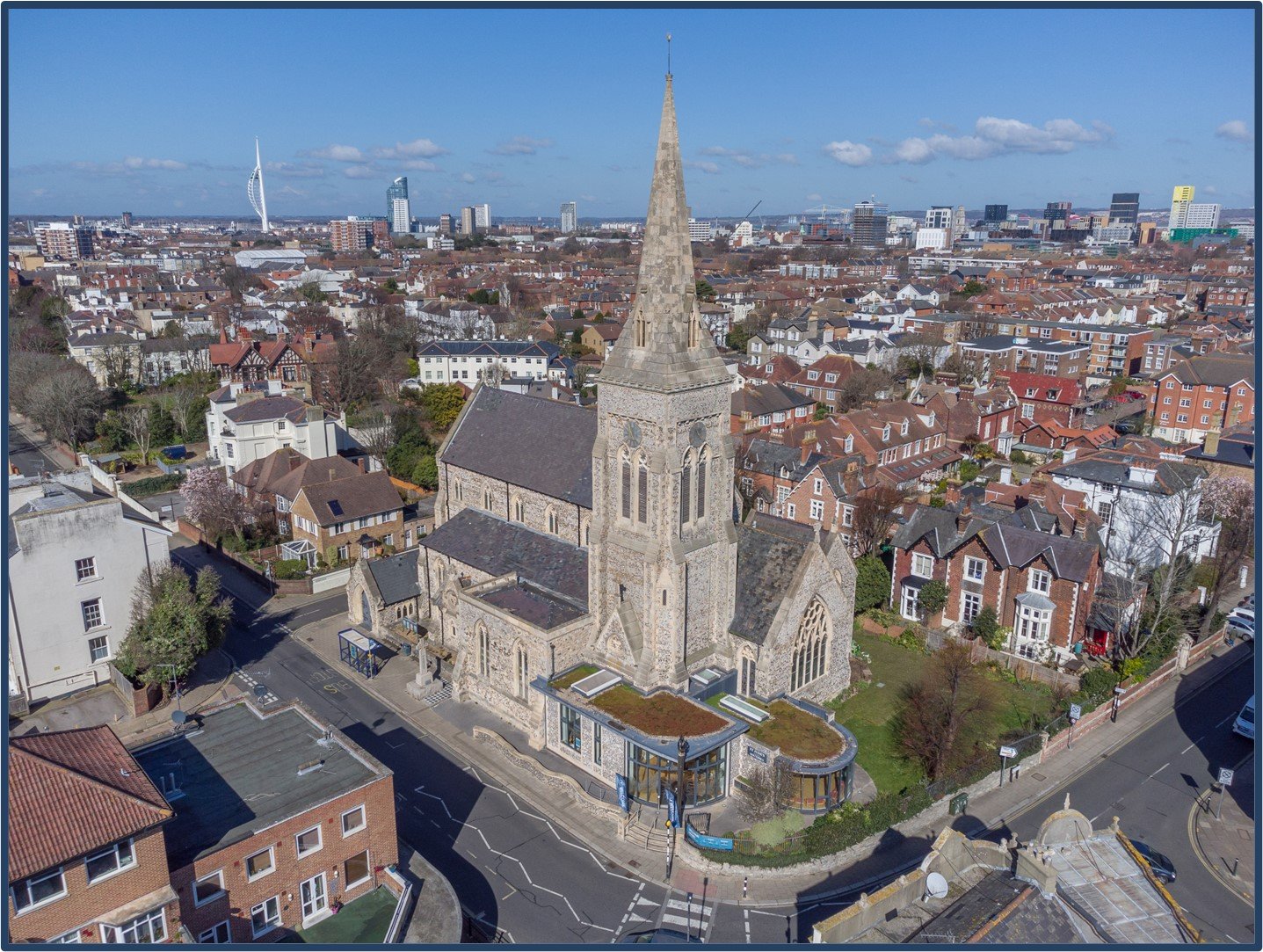
Solar Panels
It’s Time to Get Serious About Solar
The Plan - Now Completed!!
Install 36 solar panels on the south-facing lower side aisle roof of St Jude’s, facing Kent Road.
Click here to see more:
We are future-proofing our building and reducing our carbon footprint
Our solar panels are helping to make St Jude’s Church Southsea become a carbon net zero building ready to face the challenges of the future.
Why Solar Panels?
The solar panels help us to:
• heat our building and provide power in the face of rising energy costs.
• reduce our carbon footprint and protect the environment.
• encourage others to care for God’s creation in the midst of the climate crisis.
The Story So Far
In 1898 St Jude’s was one of the first public buildings in our city to install electricity. In our generation we want to again be leaders in adopting technology that will show our commitment to the long-term future of our beautiful building.
After three years of hard work we have gained the approval from all the relevant planning bodies. We have consulted with Historic England, The Victorian Society, the Portsmouth History Society, Portsmouth City Planning Department and the Diocesan Advisory Committee. They are all agreed that our project should go ahead.
Thanks to generous donations, and considerable hard work, our panels are now on the roof!!
Let’s Talk Numbers
What are the benefits for St Jude’s?
36 Photovoltaic Panels producing 12,500 KWh per year.
Each year we stop 3 tons of CO2 going into the atmosphere.
Monthly saving of £500 of energy costs for the church.
Lifetime energy cost savings over 20 years £128,000.
How was this paid for?
We have now hit our target for donations - thank you to all who contributed!
Grant applications now completed.
Ethical Solar Panels
Our Eco Church Team have carefully chosen Meyer-Burger low-embedded-carbon solar panels, made in a factory where all power is from sustainable sources (the roof is covered with panels). The silicon is from Norway, where it's melted and processed using hydro-electricity.
Because these panels are made in Europe, standards for working conditions and workers’ rights are high, compared with some comparable factories elsewhere in countries such as China.
AND if the grid goes down, our panels will still work (unlike most domestic panels that switch off if the inverter senses that the grid is off). So you'll have a place to charge your phone and keep warm during a power-cut.




